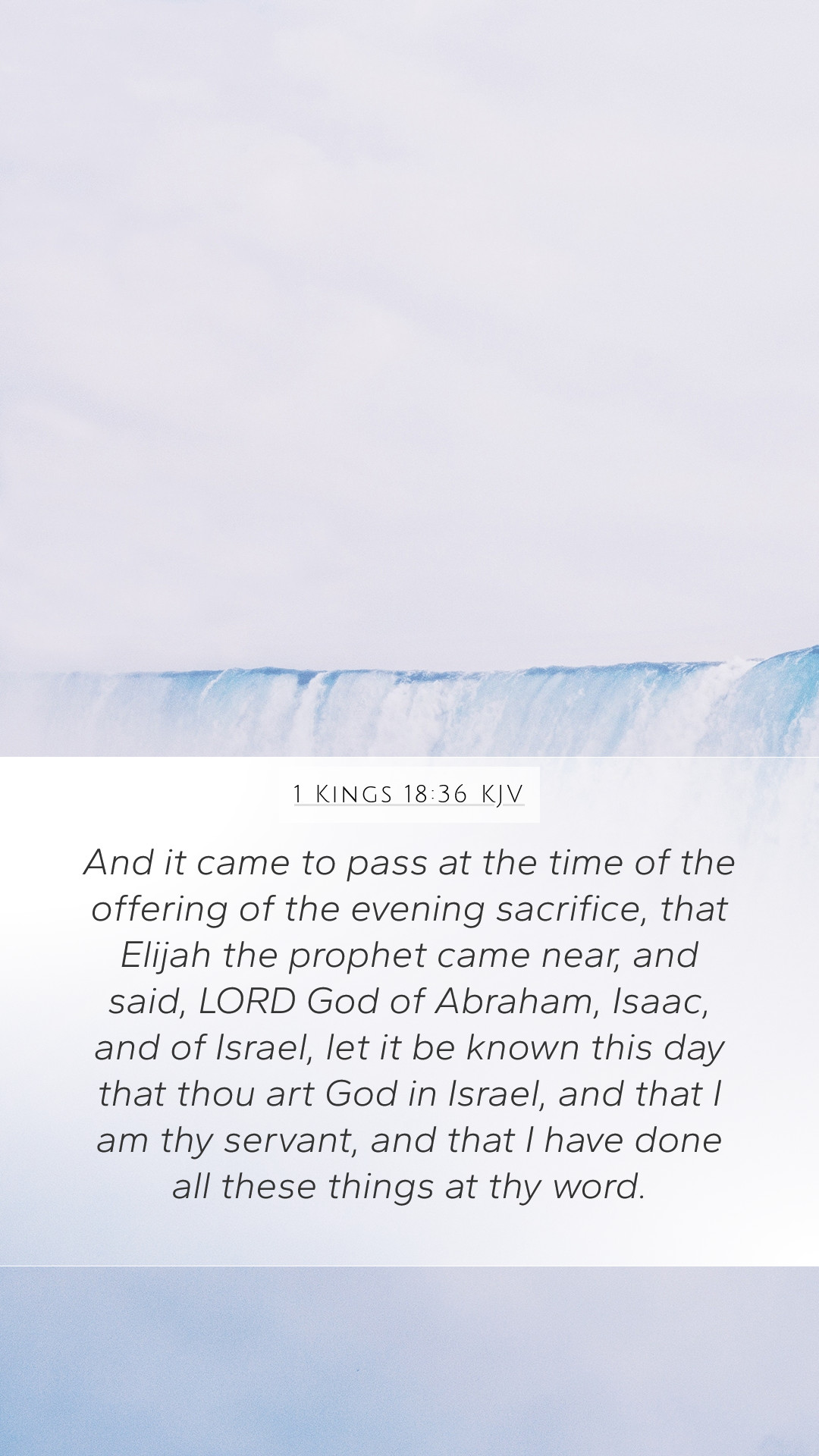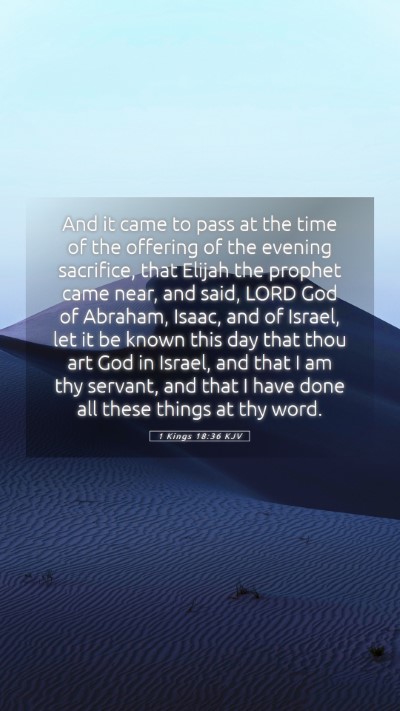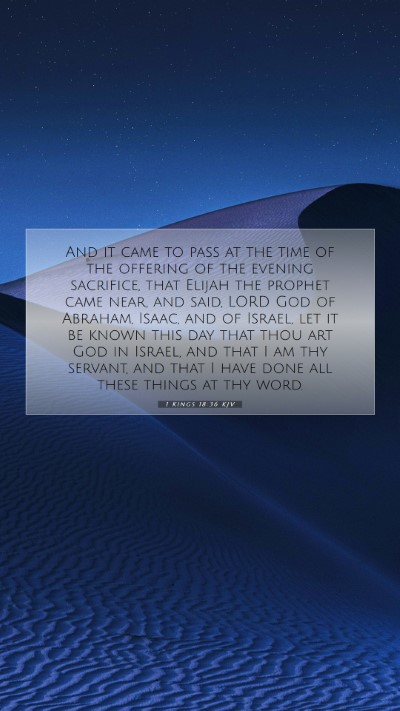Bible Verse Commentary on 1 Kings 18:36
Verse: "And it came to pass at the time of the offering of the evening sacrifice, that Elijah the prophet came near, and said, Lord God of Abraham, Isaac, and of Israel, let it be known this day that thou art God in Israel, and that I am thy servant, and that I have done all these things at thy word."
Meaning of 1 Kings 18:36
This verse occurs during Elijah's confrontation with the prophets of Baal on Mount Carmel. Elijah is seeking to demonstrate the one true God’s power in contrast to the false gods worshipped by Israel at that time. Here, he appeals to God as the covenant God of Israel, highlighting the connection to the patriarchs Abraham, Isaac, and Israel, thereby establishing the foundation of his faith and authority.
Contextual Background
- Historical Context: The reign of King Ahab brought idolatry and corruption to Israel. Elijah’s challenge was not only against Baal worship but against the apostasy of Israel.
- The Significance of Sacrifice: The mention of “the evening sacrifice” connects the act of prayer and sacrifice to the Levitical practices outlined in the Law, reinforcing the importance of direct communication with God through prescribed means.
- Public Declaration: This prayer serves as a public appeal to God, requesting divine proof of His existence and power.
Elijah’s Invocation
Elijah’s invocation is notable for its directness and precision. By calling upon the “Lord God of Abraham, Isaac, and Israel,” Elijah places himself firmly within the covenant relationship established by these fathers of faith. It reinforces the endurance of God's promises and underscores His sovereignty.
The Theology of Divine Revelation
- God’s Sovereignty: Elijah’s request that God demonstrate His identity encapsulates a core theological truth: God’s self-revelation is essential to faith.
- Servanthood: Elijah identifies himself as God’s servant, emphasizing his obedience and role as a prophet. This humility contrasts sharply with the arrogance seen in the prophets of Baal.
Insights from Public Domain Commentaries
According to Matthew Henry, the essence of this verse highlights Elijah's faith and boldness in confronting the idolatry rampant in Israel. He notes how Elijah’s prayer was grounded in God’s covenant faithfulness, accentuating the relationship between God and His people.
Albert Barnes emphasizes the importance of the timing and manner of Elijah’s prayer, showcasing it as a pivotal moment that orchestrates divine intervention. He also reflects on the contrast between the powerful presence of God and the impotence of foreign gods.
Adam Clarke presents an analysis of the phrase “let it be known this day,” representing a yearning for recognition of God’s authority and presence. Clarke views this moment as critical in the narrative, as it addresses the larger theological conflict between Yahweh and Baal.
Practical Applications
This verse serves several modern applications for personal faith and corporate worship:
- Faith in Times of Challenge: Believers can draw strength from Elijah's boldness in advocating for God amidst overwhelming opposition.
- Prayer as Communication: The evening sacrifice signifies the importance of dedicated times for prayer in our own lives, emphasizing the need for moments of focused devotion.
- Public Witness: Elijah’s example encourages believers to publicly stand for their faith, calling upon God to act in their circumstances.
Cross References
- 1 Kings 17:1: Elijah’s initial proclamation of drought signifies the beginning of his prophetic ministry.
- Exodus 3:6: God's self-revelation to Moses parallels Elijah's invocation, affirming His identity connected to the patriarchs.
- James 5:17-18: This New Testament reference reflects on Elijah's fervent prayers and their powerful results.
Conclusion
In summary, 1 Kings 18:36 encapsulates the essence of prophetic ministry, faith, and the attributes of God. By invoking the God of Abraham, Isaac, and Israel, Elijah not only seeks a demonstration of God's power but also aligns himself with the covenant promises that define Israel's heritage. Understanding this verse sheds light on the broader narrative of God's interaction with His people and serves as an exhortation towards faith and reliance upon Him.
Keywords for Further Study: Bible verse meanings, Bible verse interpretations, Bible verse understanding, Bible verse explanations, Bible verse commentary, Scripture analysis, Biblical exegesis, Bible study insights...


